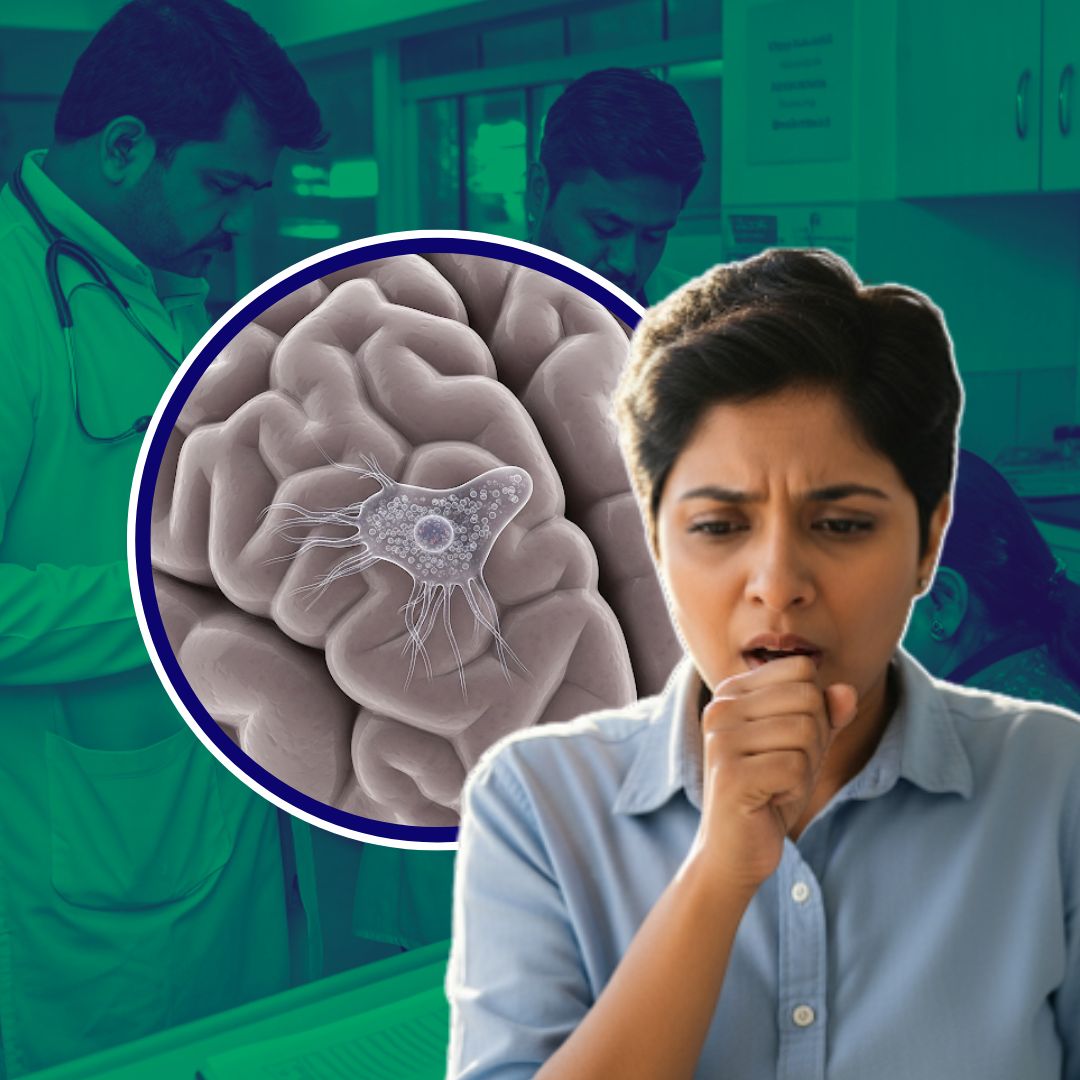Kerala has reported its fifth death this month from amoebic meningoencephalitis caused by the brain-eating amoeba Naegleria fowleri. So far this year, 42 cases have been confirmed, chiefly in northern districts such as Malappuram, Kozhikode, and Wayanad.
The latest fatality was a 56-year-old woman from Malappuram who died at Kozhikode Medical College Hospital, where 11 patients remain under treatment.
Health authorities have issued treatment guidelines for doctors and are intensifying water safety measures amidst warnings to avoid swimming or bathing in potentially contaminated freshwater bodies.
Rising Case Numbers and Public Health Measures
The deadly infection continues to pose a serious health risk in Kerala, with five deaths reported in just over a month. The brain-eating amoeba thrives in warm stagnant freshwater such as ponds, wells, rivers, and poorly chlorinated pools.
Infection occurs when contaminated water enters the nasal passages during swimming or bathing, allowing the amoeba to travel to the brain and cause primary amoebic meningoencephalitis (PAM), a rapidly fatal condition with over 97% global mortality.
The Kerala government has launched an aggressive “Water is Life” campaign, focusing on chlorination and public awareness to reduce exposure, especially during the monsoon season when water stagnation worsens. Officials urge residents to follow safety protocols, including avoiding ritual nasal cleansing with unsterilised water, a traditional practice that may increase risk.
Background and Medical Advances
Kerala’s surge marks a worrying increase from 2024, which recorded 36 cases and nine deaths but also demonstrated some success with survivors numbering 27 due to early treatment interventions. Remarkably, doctors at Thiruvananthapuram Medical College reported a landmark case where a 17-year-old patient survived dual infections, including amoebic meningoencephalitis, following surgical intervention and specialized care.
This highlights Kerala’s proactive medical response amid a global scenario where deaths from this infection are nearly universal. The state health authorities have issued detailed management protocols for clinicians and are procuring essential medicines, including miltefosine, to improve outcomes.
Preventive Measures and Government Initiatives
Kerala’s government has launched the “Water is Life” campaign, focused on chlorinating wells and water tanks and cleaning public water bodies to curb infection spread. Authorities urge residents to avoid swimming in stagnant or untreated water and to use boiled or sterile water for nasal rinsing. Schools are actively educating children on safe water practices to build awareness from a young age. These sustained efforts are crucial to reduce exposure and protect public health.
Expert Advice and Preventive Steps
As reported by The Federal, Dr Vivek Iyer, Consultant Neurologist at SIMS Hospital, Chennai, stresses that “the brain-eating amoeba does not spread between people but through contaminated freshwater. Symptoms like headache, vomiting, seizures, and confusion appear within days of exposure.”
He advises that prevention is crucial: “Avoid swimming in warm freshwater lakes or ponds, ensure pools are properly chlorinated, and use only boiled or sterile water for nasal rinsing.” Such vigilance, alongside environmental management and public education, is critical to reduce transmission risk.
The Logical Indian’s Perspective
The rise of this rare yet devastating infection in Kerala underscores the urgency of sustained environmental and public health interventions in a changing climate.
Safe water practices, community engagement, and investment in healthcare infrastructure must be prioritised to protect vulnerable populations. Kerala’s efforts demonstrate that with scientific rigour combined with community awareness, even lethal infections can be better contained.












